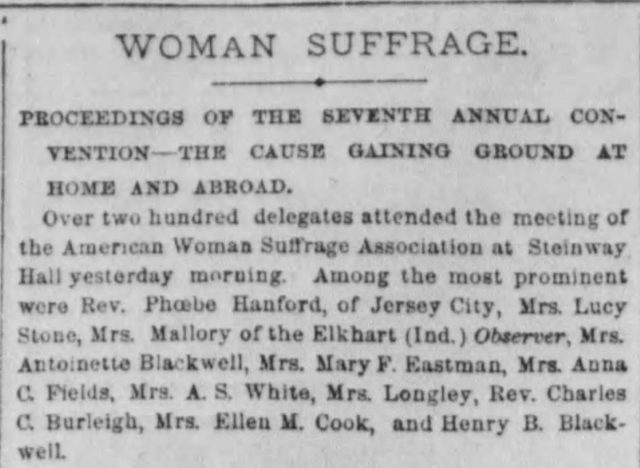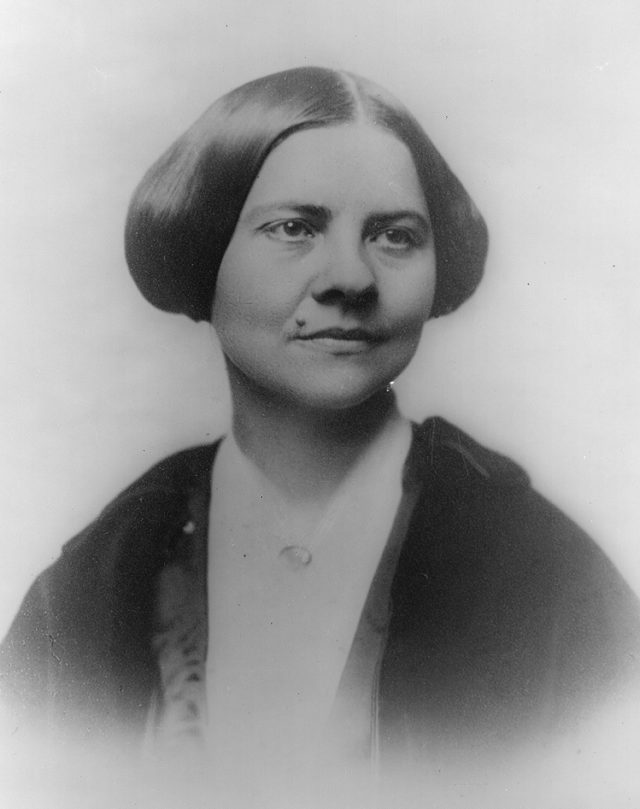“The devil has come down in great wrath knowing that his time is short.”
Lavinia Goodell, February 29, 1872
In early 1872, media accounts – especially on the east coast – were abuzz with the scandalous story that a woman had been allowed to preach in a Brooklyn Presbyterian church. The brazen woman in question was Sarah Smiley, a Quaker.

Ms. Smiley was born in Maine in 1830. She initially wanted to become a teacher but after the Civil War went South to “relieve human suffering.” She later began speaking to audiences and eventually was invited to speak in liberal-minded churches. In January 1872 she became the first woman to ever speak in a Presbyterian church when Rev. Theodore Cuyler invited her to address his congregation in Brooklyn. Rev. Cuyler had lived with Quakers and had been invited to address a Friends revival meeting in Brooklyn, so in return he invited Ms. Smiley to speak from his pulpit on a Sunday evening.
By all accounts Ms. Smiley’s address was well received (she spoke about the vision of Jacob wrestling with an angel), and it is unlikely that either she or Rev. Cuyler could have anticipated the firestorm that soon followed. Two days after the event a scathing letter signed by Jon Edwards appeared in the Brooklyn Daily Eagle. Mr. Edwards accused Rev. Cuyler of “degrading the teachings of St. Paul.” He wrote:
Continue reading →This is no time to encourage even in the remotest way the pretensions of those graceless women who are engaged in the unholy work of turning society upside down, and whom I hear in our families and social gatherings, ridiculing St. Paul as an old Jewish bachelor, unworthy of respect.
















